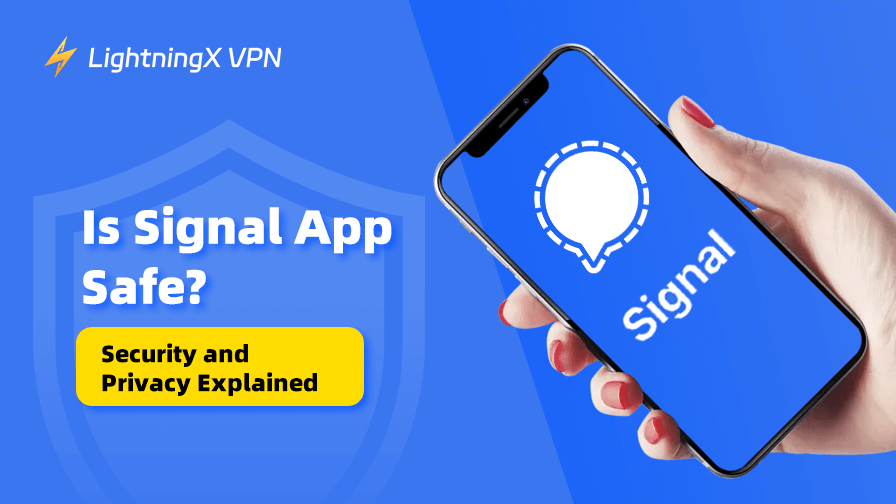With digital devices and AI bursting into our lives, privacy and security are no longer optional. They are fundamental needs. Messaging apps are the common assistants of our communication. The security of these platforms directly impacts how much trust we place in them.
Recently, the Signal app grabbed headlines when it was reported that senior US officials were using it for a secret group chat. This revelation sparked conversations about Signal’s safety and why such high-profile individuals would choose it over other messaging platforms.
But what makes Signal stand out? And, more importantly, is Signal app safe for average users? Let’s explore Signal’s features, security mechanisms, and the reasons behind its growing popularity.
Why Is Signal So Popular? The Rise of Signal
Signal has been on the radar of privacy-conscious users for years. However, its popularity has surged significantly in recent times.
One of the reasons for this surge is the increasing awareness of digital surveillance, data breaches, and the misuse of personal information by corporations and governments. Signal positions itself as a solution to these concerns by offering end-to-end encrypted messaging.
The app gained further credibility when prominent figures such as Edward Snowden, Elon Musk, and now senior US officials endorsed it (according to a leak of a US government group chat). The fact that high-ranking government officials are using Signal for private conversations raises an important question: What makes Signal so trustworthy?
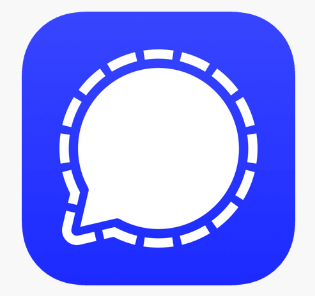
What Makes Signal Different from Other Messaging Apps?
To understand Signal’s appeal, it’s helpful to compare it with other messaging apps like WhatsApp, Telegram, and iMessage. While many of these apps claim to offer secure communication, Signal goes a step further in a few key aspects:
Aspect 1. End-to-End Encryption
Signal uses the Signal Protocol for end-to-end encryption. This protocol ensures that only the sender and the recipient can read the messages. Even Signal itself can not access the content of your conversations.
This is a critical feature for anyone who values privacy, as it prevents third parties – including governments, hackers, and even the service provider – from intercepting or reading your messages.
While apps like WhatsApp also use the Signal Protocol, Signal has a distinct advantage: it doesn’t collect metadata about your conversations.
WhatsApp, on the other hand, collects metadata such as who you’re talking to, how often, and at what times. This metadata can reveal a lot about your behavior, even if the content of your messages remains encrypted.
Pro Tips: Boost Your Security with LightningX VPN
While Signal encrypts your messages, it doesn’t hide your IP address. For complete privacy, pair Signal with LightningX VPN. A VPN masks your IP address and encrypts your internet traffic with advanced encryption algorithms, ensuring that no one can track your online activity – even on public Wi-Fi.
Download LightningX VPN right now and stay protected everywhere!
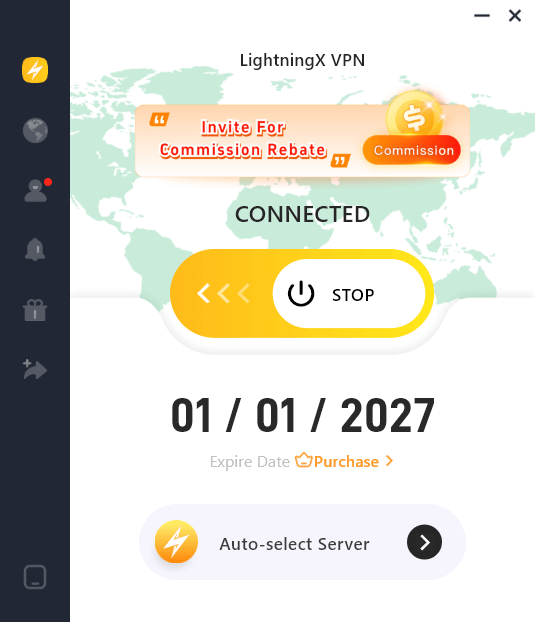
Aspect 2. Minimal Data Collection
Signal is designed with privacy in mind. Unlike many other apps, Signal does not collect user data beyond what is absolutely necessary. In fact, the only piece of information Signal stores is your phone number. There are no ads, no trackers, and no user profiling.
The minimal data collection is a stark contrast to apps like Facebook Messenger and WhatsApp, which are owned by Meta and rely heavily on user data to deliver targeted advertisements.
Related: Is WhatsApp Safe? WhatsApp Review
Aspect 3. Open-Source Code
One of Signal’s most significant strengths is its open-source nature. The app’s code is publicly available on GitHub (https://github.com/signalapp). That means anyone can review it for vulnerabilities or flaws.
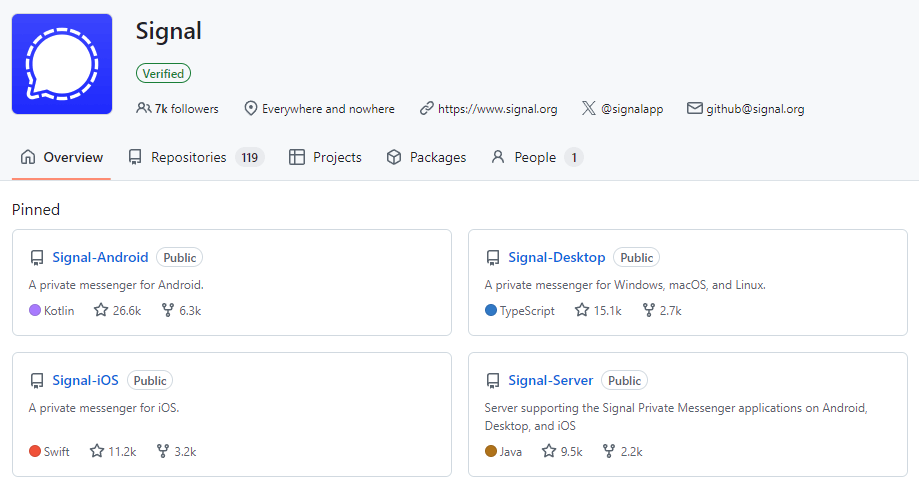
This transparency builds trust among users and security experts alike, as it ensures that Signal’s claims of privacy and security can be independently verified.
In contrast, many other messaging apps use proprietary code, making it difficult to verify their security claims.
Related: What Is GitHub? Here’s a Guide for Beginners
Aspect 4. No Ties to Big Tech
Signal is operated by the Signal Foundation, a nonprofit organization. This means it isn’t driven by profit motives or influenced by advertisers. Unlike apps owned by major corporations, Signal’s primary goal is to provide a secure communication platform, not to monetize user data.
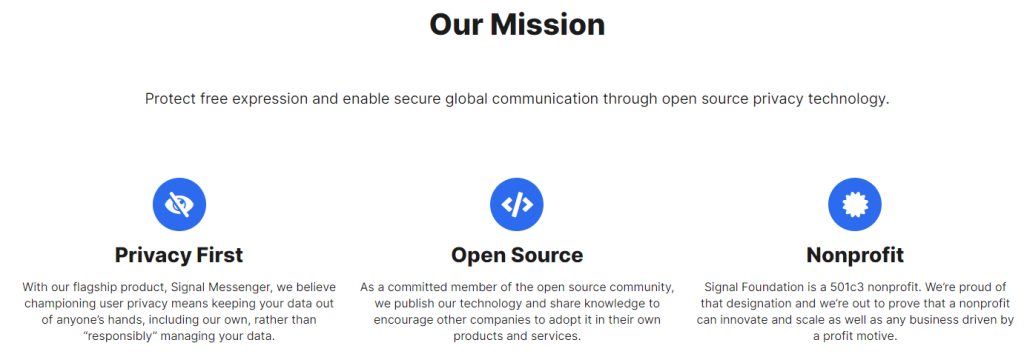
Is Signal App Safe for Real?
While Signal is widely regarded as one of the safest messaging apps available, it’s important to consider what “safety” means in the context of digital communication. Here are some factors to keep in mind:
Factor 1. Encryption Is Only Part of the Equation
Signal’s encryption is undoubtedly robust, but encryption alone isn’t enough to guarantee complete safety.
For example, if someone gains access to your unlocked phone, they can still read your Signal messages. Similarly, if you use weak passwords or fail to secure your account, your data could be compromised.
Factor 2. Trust in the Signal Foundation
Signal’s nonprofit status and open-source code make it one of the most trustworthy apps out there. However, trust is a subjective concept. Some users may still feel uneasy about relying on any third-party app for highly sensitive communication.
It’s worth noting that even Signal has faced legal requests for user data, although the app’s minimal data collection practices mean there is little, if anything, to hand over.
Factor 3. Phone Number Requirement
One critique of Signal is that it requires a phone number to create an account. This can be a concern for individuals who want to remain entirely anonymous. While Signal does not link your phone number to your conversations, the requirement to provide one may still deter some users.
Related: Phone Number Generator: How to Generate Phone Number Easily?
Should You Use Signal?
Whether or not Signal is the right app for you depends on your specific needs and concerns. If privacy and security are your top priorities, Signal is an excellent choice. It’s particularly well-suited for journalists, privacy advocates, and everyday users seeking secure communication.
That said, Signal may not be the best fit for users who prioritize features like cloud backups, large group chats, or multi-device support, as the app’s primary focus is security rather than convenience.
FAQs – Is Signal App Safe
Q1. Can your Signal get hacked?
While Signal is one of the most secure messaging apps available, no app is entirely immune to hacking. Still, your phone can also be hacked. To minimize the risks like weak passwords and account issues, you need to enable features like Signal’s PIN to lock screen and use 2FA whenever possible.
Q2. Is Signal app safer than WhatsApp?
Yes, Signal is generally considered safer than WhatsApp, especially going beyond when it comes to being ad-free.
Q3. Is Signal free to use?
Yes, Signal is completely free to use. Unlike many free apps that monetize user data or display ads, Signal is funded by donations and grants through the Signal Foundation, a nonprofit organization. This funding model ensures that Signal remains independent and focused on privacy rather than profit.
Bottom Line
Is Signal app safe? It’s very secure. However, there’s no definite safety. You need to take other steps such as lock your Signal’s screen in time and use a VPN to further encrypt your Signal data.






